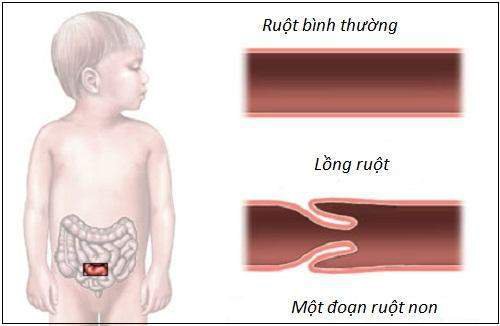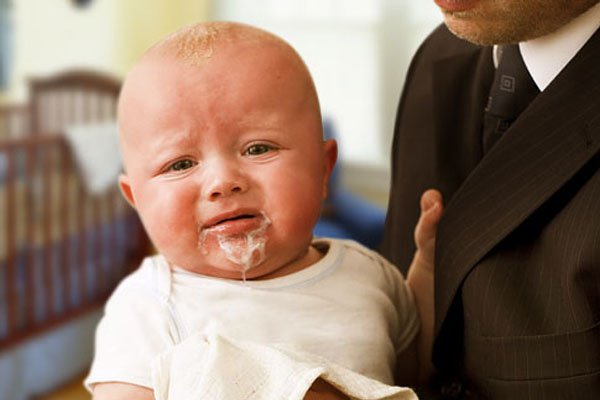Serious diseases children can get between 0-3 years old
The article was professionally consulted by Doctor Nguyen Ngoc Thai Chau - Department of Pediatrics - Neonatology - Vinmec Phu Quoc International General Hospital
If your child has the signs and symptoms listed below, there is a high risk of serious health problems. Then, seek medical help and support as soon as possible.
1. The child is sleepy and unresponsive
It's completely normal for babies to feel sleepy sometimes, especially baby's sleepiness often appears after breastfeeding. However, if your child is sleeping more than usual, this could be a sign of some serious childhood illness.
In the case of a sleeping baby that cannot be woken up, even if you have tried to wake him up many times, it is best to contact your pediatrician immediately. Your child's unresponsiveness is most likely a symptom of some serious illness, such as hypoglycemia (low blood sugar), or a life-threatening brain infection (meningitis). .
2. The baby cries loudly, weakly, or cries continuously

Trẻ bị lồng ruột dẫn đến tình trạng đau bụng dữ dội, làm trẻ khóc thét và vô cùng khó chịu
Most babies cry during the first few months of life to let their parents know when they're hungry or sleepy. However, when your baby cries in an unusual way, such as a high-pitched, weak cry or incessant crying, it could be a sign of some health problem in your baby.
Based on the baby's cry, combined with the external symptoms can help you recognize the condition that the child is suffering from:
Meningitis: The first sign of this disease is that the child is constantly crying, sometimes pausing for a moment and then continuing to fuss. Other accompanying symptoms include high fever, regurgitation of food, loss of appetite, stiff neck, bulging fontanelle (in infants), refusal to feed, lethargy, even coma or convulsions. Intussusception: This disease often causes severe abdominal pain in children, making them cry and be extremely uncomfortable. Other symptoms that may be noticed include refusing to feed, vomiting, abdominal distension, and blood in the stools. At a more severe level, children often present with intermittent crying, screaming, then feel tired, weak, accompanied by high fever, decreased frequency of urination, pale skin, coma, lethargy, and lethargy. , or the body is severely dehydrated. A stuffy nose or a cold: Your baby will show signs of being restless and won't stop crying, even after being comforted. Neonatal necrotizing enterocolitis: Children often have noticeable symptoms such as intermittent crying, lethargy, diarrhea, vomiting yellow fluid, bloody stools, or abdominal distension. Pneumonia: The child has signs such as high fever, wheezing, constant crying, poor feeding, bulging nostrils or whining. In cases where the baby's crying sounds weak, and there are intermittent moans, it is most likely a symptom of heart failure. Acute tonsillitis: Children often cry non-stop, the cry sounds hoarse, most clearly at night. In addition, other symptoms of acute tonsillitis in children, include fever, cough, difficulty breathing, difficulty swallowing, bad breath, vomiting, or sore throat.
3. The child has difficulty breathing or is breathing abnormally

Trẻ ho dai dẳng thường cảm thấy khó thở
When children feel short of breath, they often have the following specific symptoms:
It takes more effort to breathe to get air into the lungs The child has a persistent cough Contraction of the muscles between the ribs when the child tries to breathe The child cannot speak or make sounds In severe cases, your child may look very tired and pale. Your baby becomes tired, weak, or makes moans with each breath. These breathing symptoms can be caused by pneumonia or severe asthma.
4. Baby's skin is pale and pale
When a child's skin appears pale and pale, it may be due to poor blood circulation or low oxygen in the body. Both of these problems can be symptoms of a serious childhood condition.
5. Child has a convulsion or epilepsy

Hình ảnh trẻ bị co giật
When having a convulsion or seizure , the child's eyes may roll back up. In addition, some children were unresponsive, while others experienced severe tremors in all limbs for a short time, accompanied by shallow or irregular breathing.
After the convulsion stops, lay your baby on his side on a soft surface, and keep his or her legs slightly bent. This position can help your child recover. In addition, you should not let your child put his fingers or anything in his mouth during this time. As this can cause your child to choke on breathing.
6. The child has a rash
Rash or spots that appear on the skin but do not show signs of fading when you press hard on your baby's skin could be a sign of a life-threatening meningococcal infection.
7. Children with high fever over 38°C

Trường hợp trẻ dưới 3 tháng tuổi bị sốt không rõ nguyên nhân cần đưa trẻ đi khám bác sĩ ngay
When the body temperature is higher than 38°C, this is the body's normal response to fight infection. Most young children have a fever that is not a serious illness. However, in some cases, a fever can be a sign of a dangerous infection.
If your baby under 3 months old has a fever, you should take your baby to see a doctor immediately. Because it's hard for children in this age group to tell if they have serious underlying illnesses. But if your baby is over 3 months old and doesn't show signs of serious illness, it's still a good idea to take your baby to the doctor for screening and early prevention of health problems.
8. Children are dehydrated
One of the other early signs of some serious illness is dehydration in children. When the body is dehydrated, the frequency of urination will be reduced.
9. Vomiting often

Nếu trẻ nôn mửa không ngừng cần cho trẻ đến bệnh viện ngay lập tức
Vomiting is a way for the body to get rid of irritating substances. However, it is also a sign of illness or infection.
Vomiting that doesn't stop can lead to dehydration and dangerous imbalances in the body's chemical system. You need to take your child to the hospital immediately if the child cannot eat or drink anything, and is still vomiting after:
12 hours for children under 2 years old 24 hours for children over 2 years old To prevent Diseases that children often suffer from, parents should pay attention to nutrition to improve children's resistance. At the same time, add supporting foods containing lysine, essential micro-minerals and vitamins such as zinc, chromium, selenium, B vitamins,... snacks and less digestive problems.
Parents can learn more:
Why do you need to supplement Lysine for your baby?
The role of zinc - Guidelines for reasonable zinc supplementation
Please visit the website Vinmec.com regularly and update useful information to take care of your baby and family.
References: Raisingchildren.net.au






